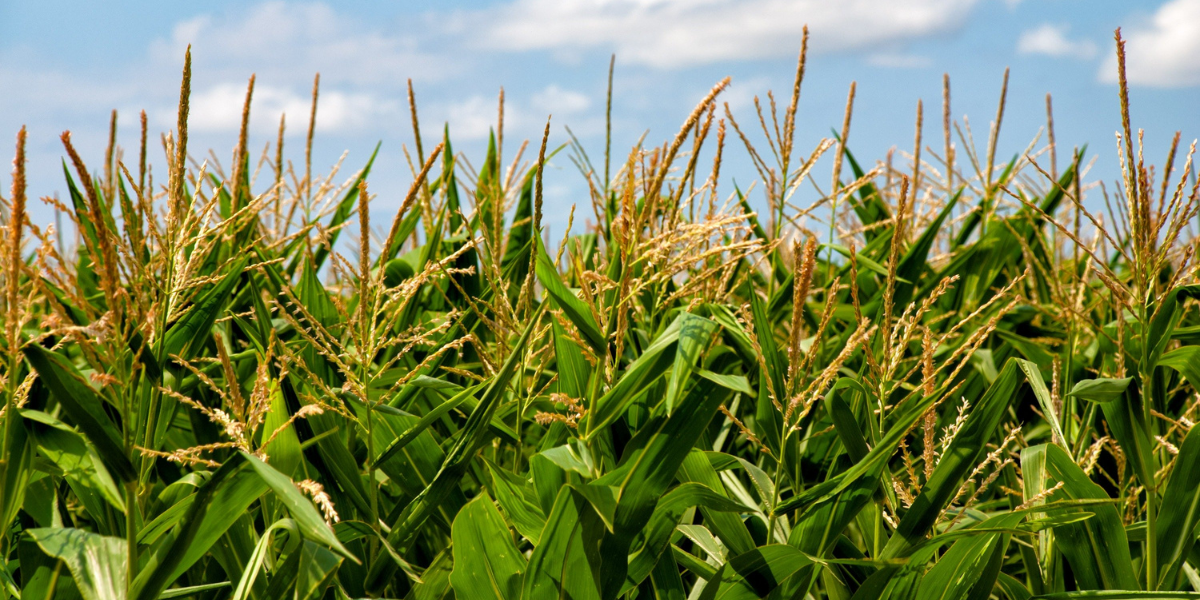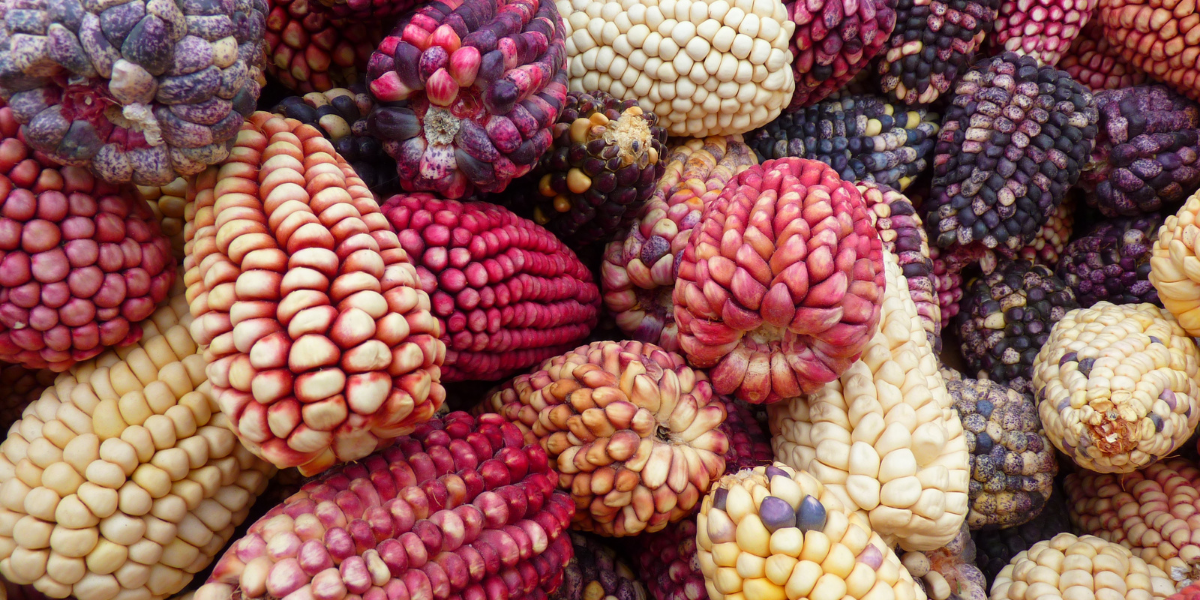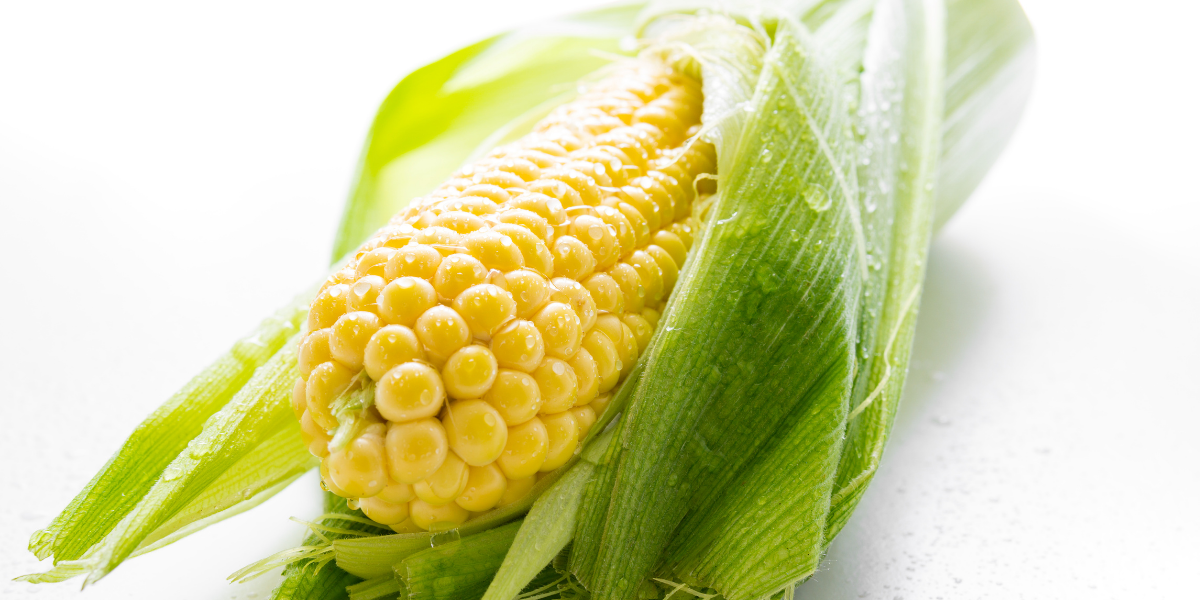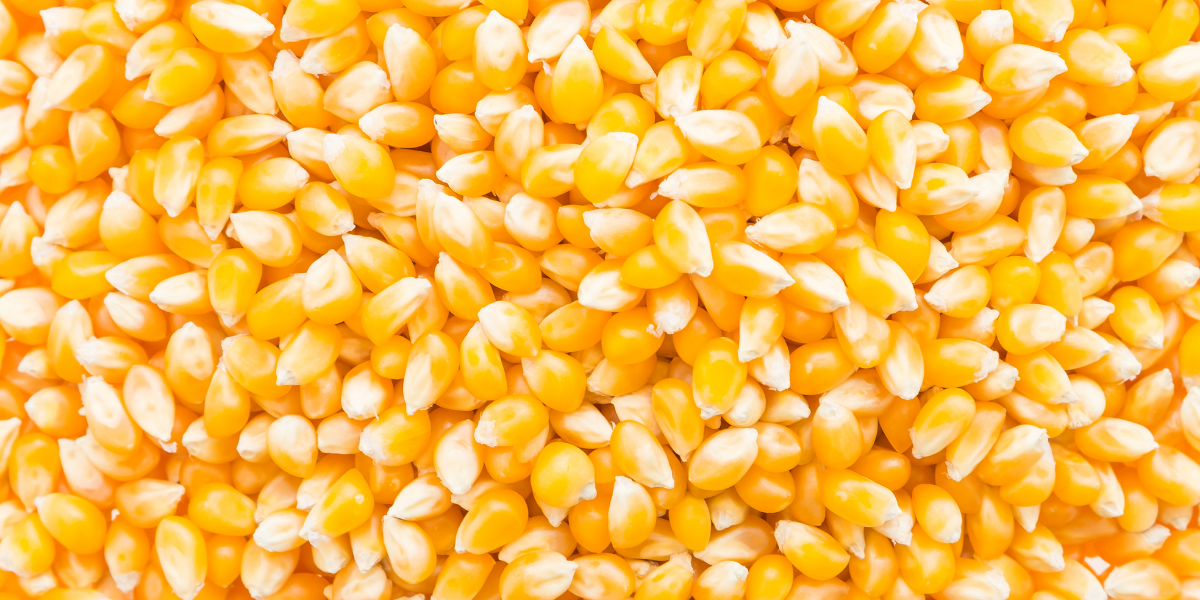Corn is a member of the poaceae plant family and usually has a white or yellow color, but can also be red, blue, and purple. Corn can be eaten in various forms such as popcorn, sweet corn, tortillas, chips, polenta, grits cornmeal, oil, and syrup that can be added to other foods and dishes.
Unfortunately, some people have a sensitivity to corn and tend to experience adverse effects after ingesting even just a small amount of any corn product. In this article, we will be discussing the various symptoms of corn intolerance.
Origins Of Corn

Corn, otherwise known as ‘maize’, was originally grown by the natives in Central Mexico about 7000 years ago. Corn, which was derived from a wild grass called teosinte, is a human invention that is unable to thrive naturally in the wild and has to be continuously planted. Later on, the Indians brought corn with them when they migrated to various locations in North and South America.
By the time Christopher Columbus discovered America, corn was a major part of the diet of the natives. They taught the colonists how to cultivate the indigenous grains which were then introduced by Columbus to Europe. Today, corn is one of the most popular cereal grains being consumed worldwide with 60 to 70% of the produce intended to feed animals.
Types Of Corn

The commercial classifications of corn are basically determined by kernel texture, and they include:
- Sweet corn -Often sold fresh, canned, or frozen and is considered a vegetable
- Dent or field corn-Primarily used for manufacturing foods like grits and tortilla chips, or grown as animal feed
- Flour corn -Is made up mostly of soft starch, has easily ground kernels, and is the main source of corn starch
- Flint or Indian corn -Has minimal soft starch and is often eaten as hominy or used for fall decorations as it comes in white, blue, red, black, and gold colors
- Popcorn -Does not contain any soft starch and are produced from kernels that have exploded after being heated
Nutrition Facts

Regardless of the type, corn offers considerable nutritional benefits. For example, one cup(164 grams) of yellow sweet corn can provide the following nutrients per serving based upon the % Daily Value(DV) of the recommended 2000 calories per day diet:
Calories 132
Protein 4.96 grams (9%)
Total Carbohydrate 29.29 grams (11%)
Dietary Fiber 4.2 grams (15%)
Total Fat 1.82 grams (2%)
Vitamin A 15 microgram (2%)
Vitamin C 10.5 milligrams (12%)
Potassium 416 milligrams (9%)
Sodium 23 milligrams (1%)
Calcium 3 milligrams (0%)
Iron 0.8 milligrams (4%)
Sugars 4.96 grams
Unfortunately, processed corn products such as syrups and chips may not be very nutritious as they tend to lose the beneficial nutrients during production. A lot of processed foods are also high in sugar, salt, or fat.
Genetically Modified Corn

In spite of the beneficial nutrients it contains, corn has the tendency to increase blood sugar levels due to its high starch content and is one of the most genetically modified crops worldwide. According to the Center For Food Safety, around 92% of the corn in the US was planted with genetically engineered seeds.
The purpose of genetically modified (GMO) corn crops is to increase yield and strengthen resistance to insects, diseases, or harmful chemicals used to control pests. As to whether genetically modified corn is safe for people, current research shows limited and conflicting findings.
One study has found an association between consumption of genetically modified corn with harmful effects on the kidneys, liver, and other organs in animals.
On the other hand, some research indicates that modified crops are not toxic to humans and offer the same nutrients as non-modified crops. A study revealed that genetically modified corn contains equal amounts of Vitamin C, fatty acids, antioxidants, minerals, and other nutrients as corn that have not been modified.
Benefits Of Eating Corn

Since corn possesses substantial nutritional value, it follows that there would be health benefits to be gained as well from regular consumption of corn, and here are some of them:
- Corn is naturally gluten-free which makes it ideal to incorporate in the diet of people who are gluten-intolerant or those suffering from celiac disease.
- Corn helps you lose weight because the high fiber content of corn enables you to stay fuller for a longer period between meals.
- Corn is high in Vitamin C and other antioxidants that help to ward off diseases like cancer and protect cells from damage.
- Corn, especially popcorn, helps prevent diverticulitis, a disorder of the digestive system caused by an inflammation of the pouches formed in the intestines.
- Corn helps protect against colon cancer because its fiber nourishes the healthy bacteria in the digestive tract.
- Corn may benefit eye health because it has carotenoids that help prevent cataracts and age-related macular degeneration (AMD).
- Corn helps control diabetes because it contains anthocyanins and flavonoids that improve blood flow, eliminate free radicals, and increase insulin secretion.
- Corn may reduce inflammation because it has proteins and phytochemicals that protect the body from pro-inflammatory agents.
Symptoms Of Corn Intolerance
Most people do not have a problem with eating corn and other corn products. However, some people experience gastrointestinal discomfort after consuming foods that contain corn and they are considered to be corn-intolerant.
In order to determine if you are one of them, here are some symptoms of corn intolerance:
-
Bloating

Bloating is when your stomach feels uncomfortably swollen after eating which is often caused by gas or other digestive issues. It can usually be traced to something in your diet.
Most starchy foods such as corn, wheat, noodles, and potatoes produce gas as they are being digested in the large intestines. Among the starches, rice is the only one that does not cause gas.
Corn is one of the most widely consumed cereal grains and has the highest production worldwide. Unfortunately, it also ranks the highest in starch content among whole vegetables. A cup (141 grams) of corn kernels has 25.7 grams of starch or equivalent to a considerable 18.2% of its weight.
-
Abnormal flatulence
When your stomach is bloated due to excessive gas, the most effective way of making yourself feel better is to let it out. You can blame your newly eaten corn for your abnormal flatulence.
Corn, just like barley, wheat, and oats, is a whole grain. Whole grains are the most nutritious type of grain and they are harvested when fully mature and dry. Whole grains contain starch, raffinose, and fiber which, when broken down by bacteria in the large intestine, can lead to gas. Eating a lot of corn can cause bloating and unusually frequent flatulence.
-
Stomach cramps

Corn, including popcorn, is a valuable source of fiber that helps to flush out harmful toxins in the body. However, too much of these fibers can be bad for your stomach. According to experts at Duke University, consuming excessive amounts of fiber can cause gas, bloating, stomach cramps, diarrhea, and mineral deficiencies.
Corn should also not be eaten raw as it often results in stomach cramps and indigestion. It is quite common for particles of undigested corn to be found in the stool and this indicates that food is passing through your GI tract too quickly without being properly digested. This can be easily corrected by eating slower, having smaller pieces, and chewing more carefully.
-
Vomiting
Too much of any type of food is bad for digestion. Eating corn in large amounts can trigger significant gastrointestinal issues such as vomiting, gas, and diarrhea. In fact, Manhattan Gastroenterology states that corn is among the 10 worst foods for digestive health.
Corn is notorious for causing indigestion because it contains a type of insoluble fiber called cellulose. Cellulose is difficult to break down because our body simply does not possess the enzyme needed to do so. If you eat corn quickly, chances are it will pass through your system undigested. Undigested food can exit our body in 2 ways: either upwards through vomiting or downwards through diarrhea.
-
Diarrhea

Sugar and sugar substitutes can cause diarrhea. Consuming foods that contain a lot of sugar enables more water to be absorbed in the intestines which leads to very loose stools or diarrhea.
High fructose corn syrup (HFCS) is a type of sugar substitute derived from processed corn. It is used to sweeten the flavor of foods and beverages. HFCS consists of the simple sugars fructose and glucose.
According to gastroenterologist and Harvard Medical School professor Dr. Norton Greenberger, 75 percent of people who consume more than 40 to 80 grams of fructose per day will experience diarrhea.
Now going back to corn intolerance. If you want to be certain that you have the condition, it is best to take a food intolerance or food sensitivity test to know for certain.
Corn Intolerance vs. Corn Allergy

Corn intolerance is when you have difficulty digesting corn and other corn products. A few hours after eating corn, you begin to experience unpleasant physical reactions such as the ones previously mentioned. If you have noticed that this often happens just after breakfast, it’s because corn is usually present in the ingredients of breakfast cereals.
Corn intolerance can really interfere with your daily activities. The good news is that it is not as severe as corn allergy. Furthermore, you need to ingest a considerable amount of corn to make yourself ill, unlike corn allergy which can be triggered by the smallest amount of corn.
Corn allergy occurs when your body’s immune system has an adverse reaction to corn. Corn may be a common food, but it is interesting to note that allergy to corn is a lot less common than allergies to peanuts, milk, wheat, soy, shellfish, or even eggs.
Although is rare for a person to be allergic to corn, the reaction is almost immediate and can be extreme. Symptoms of Corn Allergy include:
- Flushing
- Itching
- Hives
- Abdominal pain
- Nausea
- Vomiting
- Diarrhea
- Sneezing
- Stuffy nose
- Breathing difficulties
Sometimes, a person can manifest anaphylactic reactions to corn characterized by rapid weak pulse, skin rash, and shock. Anaphylaxis is the most severe form of allergic reaction and can be life-threatening because it compromises breathing and circulation. When this happens, it is advisable to seek medical intervention immediately.
Foods That Contain Corn

There are products that should be avoided or eaten in moderation because they may contain corn in their ingredients and here are some of them:
- Salad dressing
- Bread
- Vegetable oil
- Condiments like mayonnaise, ketchup, and vinegar
- Sauces
- Peanut butter
- Canned fizzy drinks
- Sweets, chocolate, and chewing gum
- Jam
- Tinned fruits
- Tinned soups
- Prepared and cured meats
Check The Label
Since corn does not belong to the top 8 allergens, it is not required to be identified as a top allergen on food labels. If you have corn intolerance, it is best to scrutinize all product labels carefully as corn is often contained in many processed foods. This is not an all-inclusive list but here are some of the ingredients to watch out for:
- Corn starch
- Corn syrup
- Corn sugar
- Corn oil
- Cornmeal
- Cornflour
- Cornflakes
- Dextrins
- Maltodextrins
- Dextrose
- Maltodextrose
- Fructose
- Ethanol
- Hydrol
- Sorbitol
- Zein
- Polenta
- Hominy
- Maize
You may also be surprised to know that corn is not only constrained to foods but also non-edible products such as shampoo, toothpaste, makeup, vitamins, paint, clothing, crayons, and dishwasher soap.
Foods To Eat Instead Of Corn
Corn flour is a good source of phosphorus, fiber, magnesium, manganese, selenium, and Vitamin B6. If you plan to eliminate corn flour from your diet but prefer to ingest the same nutrients that you would otherwise be missing due to removing problem foods, here are some good food alternatives for:
- Phosphorus – dairy products, peas, beans, poultry, meat, seafood, nuts, seeds, quinoa, wheat, amaranth
- Fiber – fruits, vegetables, rye, wheat, barley, bulgur, beans, nuts, seeds
- Manganese – pineapple, sweet potato, beans, spinach, nuts, amaranth, oats, and brown rice
- Magnesium – green leafy vegetables, dairy products, avocados, bananas, beans, potatoes, nuts, amaranth, pumpkin seeds, wheat, buckwheat, quinoa, rye
- Selenium -meat, poultry, eggs, seafood, seeds, Brazil nuts
- Vitamin B6 – salmon, tuna, chickpeas, poultry, banana, potatoes
Bottomline

Corn falls under several classifications because it can be called a whole grain, vegetable, or fruit and it would be applicable to all three. It largely depends on what form of corn you are consuming and how much your system is able to tolerate before becoming ill which varies from person to person.
Unfortunately, corn is not only contained in breakfast foods but also in a wide variety of snacks and dishes. If you have corn sensitivity, it is advisable to carefully scrutinize your food intake if you would like to avoid experiencing symptoms of corn intolerance.

